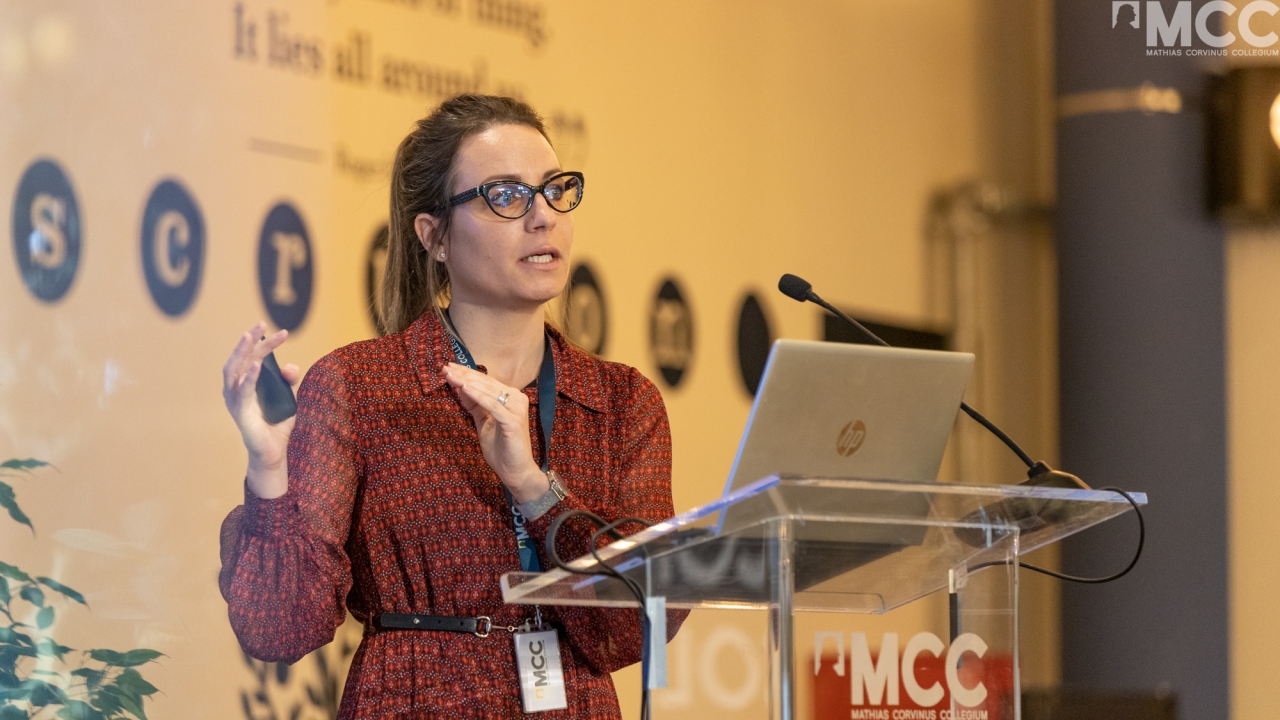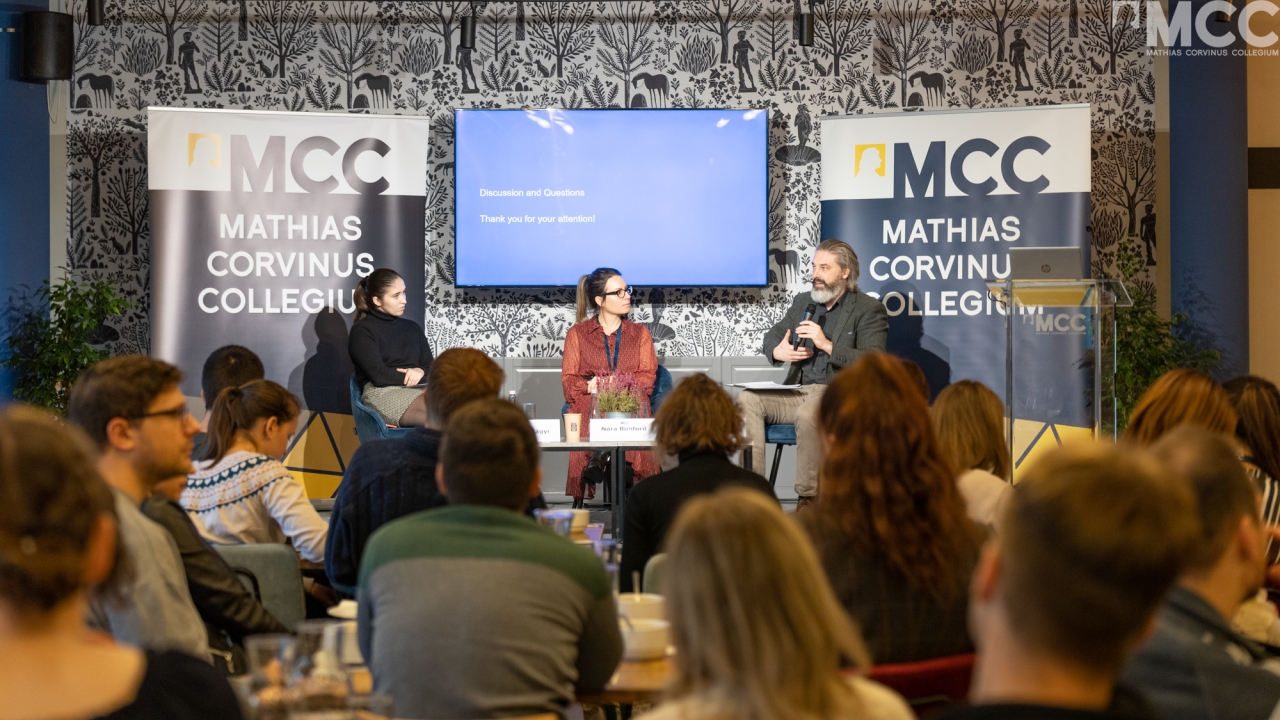Reading time: 2 minutes
This time, within the framework of MCC Lunch Talks, the floor has been given to Nóra Bunford, head of MCC-Mindset, Psychology School and head of the newly established Center for Academic Psychology.
The presentation held by Nóra Bunford shed light on the changes that psychological and psychiatric research has presented in relation to the investigation of neurodevelopmental and psychiatric disorders, primarily regarding the homogeneity of the "clinical" and "control" groups. She underlined the fact that the dichotomous classification and literature relying on such classification have certainly improved our understanding of the attention deficit/hyperactivity disorder (ADHD) and were informative in terms of showing what types of outcomes, trajectories (eg. alcoholism, depression, aggression etc.) are more likely in individuals who receive this diagnosis relative to individuals who do not, however in the light of recent results, she pointed out etiological and phenotypic heterogeneity within the categories, in contrast to groups believed to be homogeneous in terms of relevant cognitive and behavioral phenomena.
The moderators of the Lunch Talks were Calum Nicholson, visiting fellow at MCC and Anna Szilágyi, student of MCC. During the discussion, among other interesting topics, the sociocultural context of ADHD and possible triggers were discussed, which also raised the question of how the increasing number of people diagnosed with ADHD can be explained. Similar to the conclusions of countless social science researches noting that "the issue requires further research" or that "the complexity of the issue is unquestionable", such can be concluded in relation to research related to attention deficit/hyperactivity disorder, however we also need more data and research with other approaches and with different conceptualization. The latter links back to the title "To be or not to be diagnosed with ADHD: This is not the (right) question".










